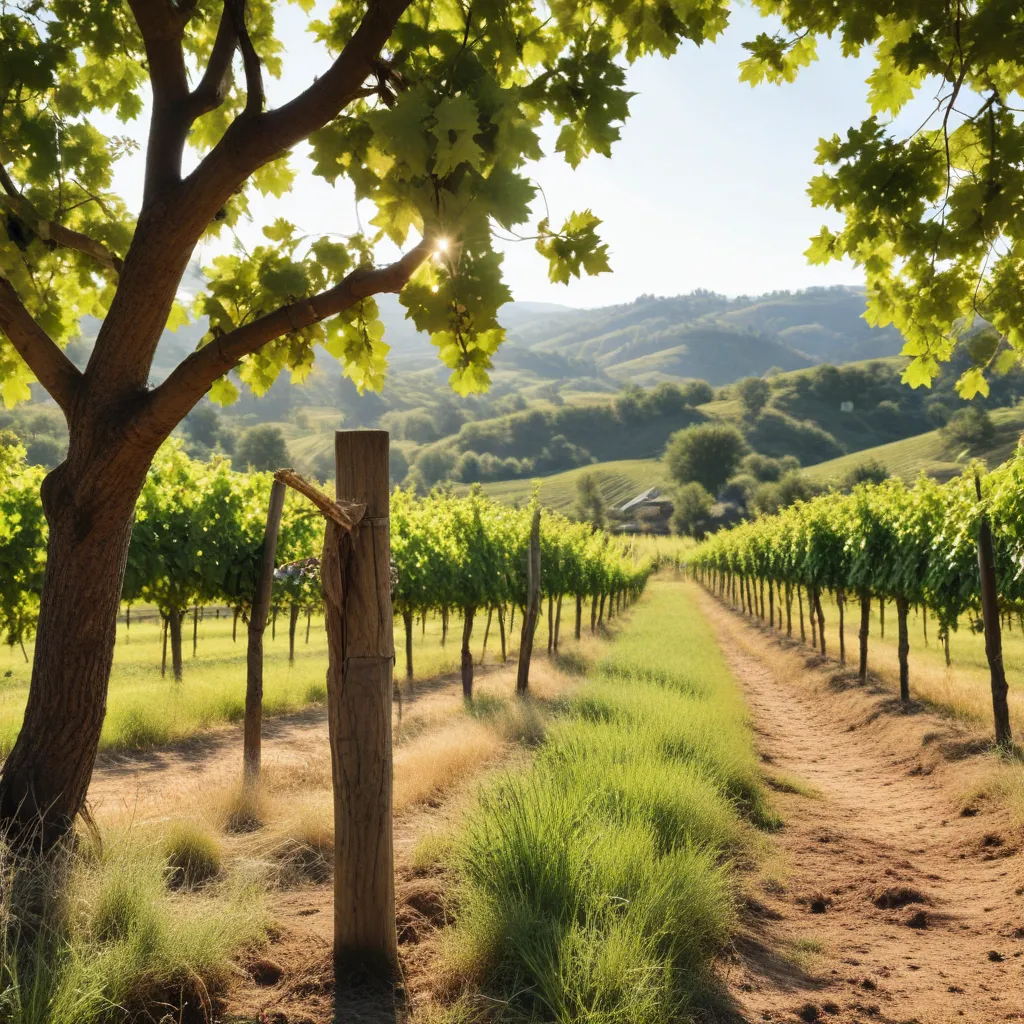
In the lush landscapes where vines intertwine with celestial rhythms and cosmic energies, a unique approach to winemaking takes root – Biodynamic Viticulture. Beyond the conventional realms of viticulture, this holistic practice weaves together agricultural wisdom, spiritual philosophy, and ecological harmony. Guided by the principles set forth by Rudolf Steiner, Biodynamic Winemaking emerges as an intriguing journey that transcends organic farming, aiming for a harmonious coexistence between the earth, the vine, and the cosmos.
Principles of Biodynamic Agriculture
Biodynamic Viticulture stands at the intersection of agricultural science and cosmic harmony. This holistic approach extends beyond conventional farming, embracing a philosophy that views the vineyard as a self-sustaining ecosystem. Biodynamic farmers prioritize the use of natural and organic materials, steering away from synthetic pesticides and fertilizers. Cover cropping, companion planting, and the integration of animals into the vineyard are integral components, fostering biodiversity and creating a balanced microcosm.
Central to Biodynamic Viticulture is the adherence to a celestial guide – the Biodynamic Calendar. Rooted in lunar and cosmic cycles, this calendar dictates optimal times for various vineyard activities. Planting, pruning, and harvesting align with lunar phases, harnessing the gravitational forces that influence sap flow and growth patterns. The cosmic dance between celestial bodies becomes a rhythm that orchestrates the vineyard’s vitality, enhancing fruit quality and vine resilience.
The foundation of Biodynamic Viticulture rests in the soil – a living, breathing entity that sustains the vine. Biodynamic practitioners prioritize soil health through composting, cover cropping, and the application of herbal preparations. The aim is not just fertility but vitality, creating a rich, diverse soil ecosystem. Biodiversity is championed, as vineyards become habitats for a myriad of organisms, from beneficial insects to microorganisms, contributing to a balanced and resilient terroir.
Biodynamic Winemaking Practices
Biodynamic principles extend seamlessly from the vineyard to the cellar, where winemakers embrace a holistic approach to crafting exceptional wines. The key tenet is to maintain the vitality of the grape and the terroir it embodies. In the cellar, biodynamic winemakers prioritize a non-invasive, thoughtful approach that respects the inherent qualities of the fruit. This involves gentle handling of the grapes, minimal use of sulfites, and eschewing the need for artificial adjustments. The goal is to allow the wine to express its unique character, reflecting the synergy between the vineyard’s biodynamic vitality and the winemaker’s skill.
Biodynamic winemaking places a premium on natural processes, and fermentation is no exception. Natural or wild fermentation, driven by indigenous yeasts present on grape skins, is favored over the introduction of commercial yeasts. This approach allows the unique microbial terroir of the vineyard to shape the wine’s flavor profile authentically. Additionally, minimal intervention is a guiding principle; winemakers refrain from excessive filtration and manipulation, letting the wine evolve organically. This hands-off approach not only respects the integrity of the fruit but also results in wines that are vibrant, expressive, and reflective of their terroir.
Advantages of Biodynamic Viticulture
The embrace of biodynamic principles in viticulture and winemaking offers a multitude of advantages, both for the environment and the quality of the wines produced. Biodynamic farming practices, with their focus on soil health, biodiversity, and cosmic harmony, contribute to a more sustainable and resilient ecosystem. By eschewing synthetic chemicals and prioritizing natural methods, biodynamic vineyards minimize their environmental impact, promoting long-term ecological balance.
The holistic approach to biodynamic viticulture also enhances the expression of terroir – the unique characteristics of a specific vineyard site. The emphasis on biodiversity and soil health can lead to a more vibrant and nuanced expression of the grape’s inherent qualities, resulting in wines that showcase a depth of flavors, heightened minerality, and a captivating aromatic profile. Proponents of biodynamic winemaking argue that this approach allows the grapes to truly reflect the distinctiveness of their terroir, creating a deeper connection between the wine, its origin, and the overarching philosophy of sustainable, holistic agriculture.
Challenges and Criticisms
While the benefits of biodynamic winemaking are well-documented, the practice has faced its fair share of criticism and challenges. One of the primary criticisms revolves around the perceived “pseudoscience” associated with certain biodynamic principles, particularly those related to the influence of cosmic cycles and spiritual elements on agricultural practices. From a scientific standpoint, some argue that the empirical evidence for the efficacy of these practices is lacking, questioning the validity of activities like planting and harvesting based on lunar phases.
Additionally, the labor-intensive nature of biodynamic farming and the associated costs can present barriers for some producers, especially smaller or less-established wineries. The meticulous attention to detail, the preparation of herbal concoctions, and the strict adherence to biodynamic guidelines can be time-consuming and resource-intensive, making it challenging for some wineries to adopt these practices on a larger scale.
Despite these challenges, the growing interest in biodynamic winemaking and the recognition of its environmental and qualitative benefits suggest a promising future. As more wineries worldwide integrate these holistic principles, the industry is on a transformative journey towards sustainability and a deeper connection with the land. By addressing criticisms and continuously refining their practices, biodynamic winemakers are poised to play a pivotal role in shaping the future of viticulture and the wine industry as a whole.
Biodynamic winemaking, with its intriguing fusion of agricultural wisdom and ecological spirituality, stands at the forefront of sustainable viticulture. As we continue to explore this distinctive approach to crafting wines, we are invited to savor not only the liquid in the bottle but also the philosophy and practices that go into each sip. The journey towards a more harmonious and holistic approach to winemaking is underway, and the story of biodynamic wines continues to unfold, inviting wine enthusiasts to connect with the land, the cosmos, and the art of winemaking in a profound and meaningful way.
For more information on our biodynamic winemaking practices and the unique wines they produce, visit www.winegardeninn.com.
